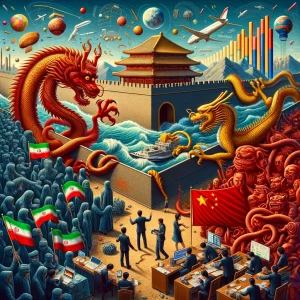When Russian President Vladimir Putin invaded Ukraine, Meduza, a major independent Russian-language news source, recognized that it was in danger. Meduza had foreseen Putin’s hand; however, the entity had not expected Western sanctions to cause them trouble. According to specialists, sanctions imposed on Russia for its unprovoked attack on Ukraine could stifle the expansion of its multibillion-dollar cryptocurrency sector.
Putin’s crackdown strengthens the crypto position in media outlets
Several countries have imposed sanctions over the course of the continuing war between Russia and Ukraine, and Russia itself has done so. Putin has been branded an enemy of the people by the ongoing disasters, which have prompted significant economic powers to ensure that his government’s hand is kept short without help.
After the international sanctions got announced, Russian readers began complaining that payments to the Latvian-based outlet weren’t going through. The decision follows from several others who got forced to cease operations in the country because of financial difficulties.
The team couldn’t anticipate that Western governments’ sanctions would come first and destroy their crowdfunding, according to Ivan Kolpakov, editor-in-chief at Meduza. The embargoes compelled Meduza to begin accepting crypto for the first time and rely entirely on international donations for its operations.
Keeping the lights on has become critical to Russia’s free press as Putin essentially prohibited independent reporting on the war. After the new regulations scattered hundreds of local journalists worldwide, these media organizations took it upon themselves to figure out how to report from outside their country.
Unprecedented pressure has caused several independent media outlets to close, and the government censor has restricted access to other resources. After a new law that threatened jail sentences of up to 15 years for spreading “fake news,” global news organizations announced they were pausing reporting in Russia to safeguard their reporters.
According to reports, the BBC announced that it has temporarily stopped reporting from Russia following Putin’s order. By the end of the day, the Canadian Broadcasting Company and Bloomberg News said their journalists were also stopping work. CNN and CBS News stated that they would cease broadcasting in Russia, and other organizations took out by-lines for Russian-based journalists as a precautionary measure.
The government has passed strict new rules to combat foreign “fake” news. It is now an offense under the criminal code to spread false information. In addition, any calls for economic sanctions against Russia in response to its invasion of Ukraine are subject to fines.
Novaya Gazeta, whose editor Dmitry Muratove won the Nobel Peace Prize last year, was shut down in March after regulators gave it warnings about its coverage. Furthermore, Ekho Moskvy radio station lost its FM frequency to a state-controlled propaganda outlet.
Meduza sheds right amid media blanket ban
The Kremlin has been cracking down on social media, blocking Facebook and Instagram for “extremist” postings. Alphabet Inc.’s Google was fined and warned by Roskomnadzor over its YouTube regulations. Additionally, over the bans, TikTok halted live streaming in Russia.
Putin’s popularity has grown amid the media clampdown, even though public opinion polling in Russia is unclear. Putin’s presidency was widely popular, with 83 percent of respondents in a March Levada Center poll approving his actions as president, up 12 points from the previous month and the greatest since 2017.
Meduza continues to publish reports, including a recent chronicle of atrocities committed by Russian troops during their occupation of a village near Kyiv. The Kremlin has denied any involvement in war crimes. Russia has banned the material, forcing Meduza’s main market residents to employ virtual private networks to read it.
The audience responded swiftly, with Meduza urging its readers to download their news app and join their Telegram group. Kolpakov recalls that the news reporting made them feel like a group of survivors in a bunker warning that the apocalypse would come.
After the restrictions, Meduza’s traffic dropped by about a third. They still have bills to pay. Now that they can no longer count on donations from around 30,000 Russian readers who had supported it before the war, Meduza is appealing to its worldwide following for cash, euros, or crypto as soon as possible to assist with the journalist resettling in Riga.
Amid sanctions and Putin’s government “menace,” Meduza offers instructions for purchasing Bitcoin and Ethereum on Binance. Suppose contributors are concerned about anonymity, a step-by-step tutorial to sending untraceable payments via Monero. On-chain data show that the Bitcoin and Ether wallets offered on Meduza’s website stood at more than $230,000.
Meduza’s reporting on Putin’s reign is a call to arms for all journalists, reminding us that journalism has always been dangerous in Russia, where over 60 reporters have perished since the fall of the Soviet Union. Those who remain in Russia now face intimidation under Putin’s rule.
The funding freeze wasn’t the first time Meduza had to adapt its business model on the fly. For now, Meduza can barely survive thanks to a lack of funds. Meduza was established in Riga in 2014 during a previous media crackdown following Russia’s annexation of Crimea from Ukraine and has found several ways to survive under Putin’s rule.
Bitcoin’s potential use as a tool for Russian sanctions evasion by Putin and other high-end government officials has global regulators, including the International Monetary Fund, concerned.





